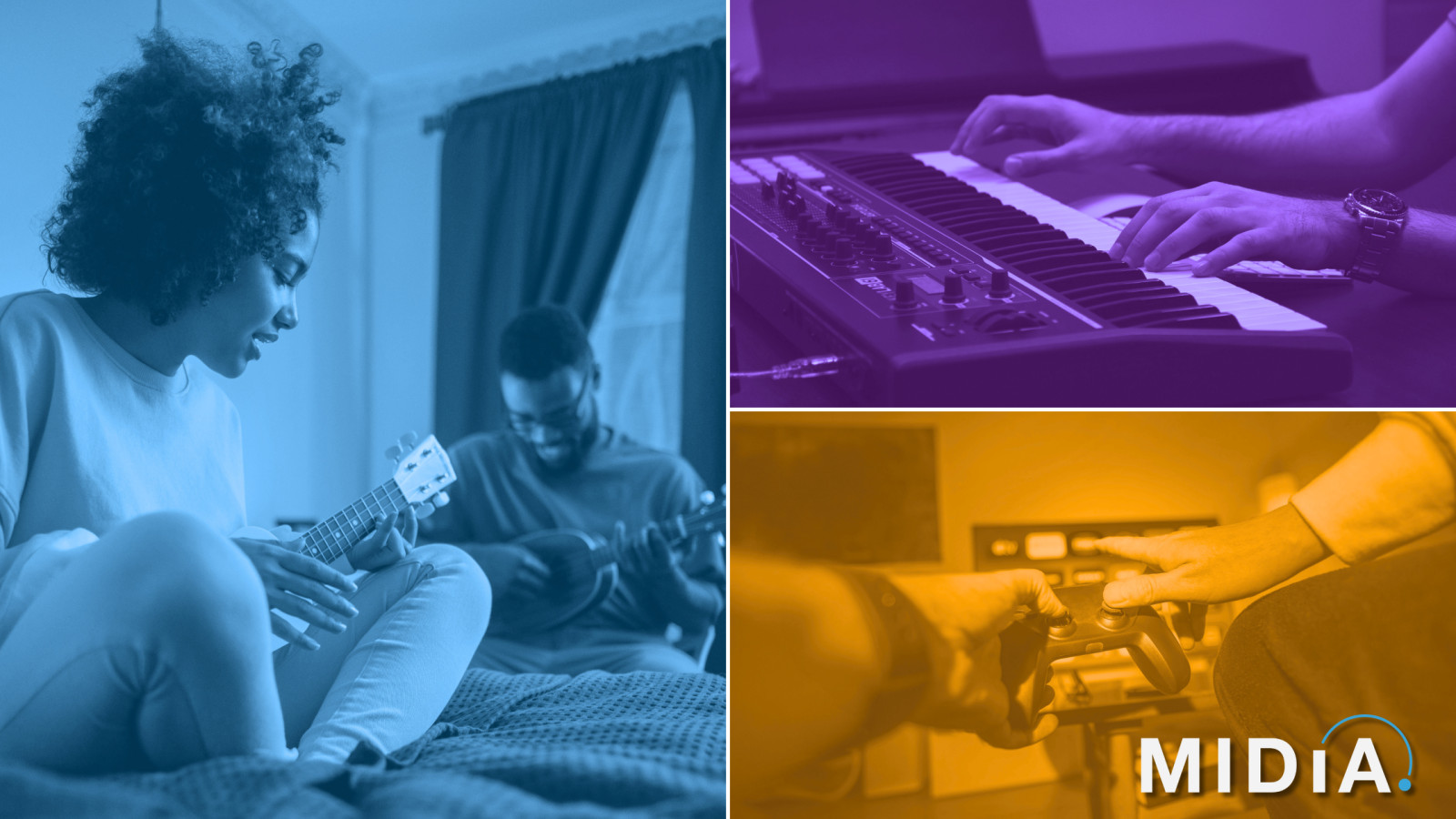What happens to music when fan-made content eclipses the original IP?


Last week, MIDiA’s Ben Woods delivered a message to the entertainment industry: nurture fandom or risk losing control of your IP. For years, the way in which consumers engage with their favourite artists, movies, TV shows, and games has become ever more about participation. All manner of fan-made content can be found online: think fan-made merchandise, TikTok dances, and fan reaction videos. For the most part, these trends have been considered free marketing for the core IP. However, 2024 has seen a significant shift – fan-created content is now starting to compete with core IP. So much so, in fact, that some consumers are engaging more with the content around a brand than the core brand itself.
There are examples of fan-made content making cultural impact across the entertainment world. As Ben explains, a superfan of Capcom’s Dino Crisis game grew tired of waiting for a reboot, so he simply remade, and improved on, the original game himself. Anyone with an internet connection and interest in pop culture is by now familiar with the Wicked film — perhaps too familiar, to the point where consumers may feel they do not need to see the film to be part of the cultural conversation at all. And back in 2021, two Bridgerton fans created a musical version of the series (and were sued by Netflix for it). So what does this mean for the music industry?
When cultural impact ≠ revenue impact
Music is arguably in less danger of seeing fan content supersede the core content than TV, film, or games. In all those cases, the time needed to engage with the core content is relatively high (e.g., Wicked runs nearly three hours). So even if fan content brings awareness to the original IP, it does not necessarily deliver views or plays. On the other hand, consumers may be more likely to listen to a 3-minute song, or even 40-minute album, once they are made aware of it via fan content. Of course, there is a devil’s advocate argument here as well: Some consumers might feel satisfied enough by 30-second clips of song hooks shared on TikTok to do without the full version.
Nonetheless, as MIDiA unpacks in our 2025 predictions report (and webinar), we are gradually seeing the decoupling of music culture from music remuneration. Once again, Brat summer serves as an apt example. Brat was by all accounts a hugely successful streaming album. Yet the album’s cultural impact, if measurement was possible, would undoubtedly dwarf its stream count. Charli XCX gets to see some of that cultural impact translate to revenue from things like brand deals (e.g., H&M) and tour ticket sales, but her label likely does not, and neither of them earn directly from the hundreds of thousands of fan creations using the album’s name and neon green (a personal favourite: the TikTok creator turning Brat into a jukebox musical, song by song).
Featured Report
MIDiA Research 2025–2031 music creator tools forecasts AI comes to town
This music creator tools forecasts report acts as a companion piece to MIDiA’s report “State of music creator economy: AI’s growing reach ” . This report provides analysis, market sizing, and forecasts for users and revenues for music creator tools revenues across the following categories: Software and services DAWs Music software (plug-ins...
Find out more…Audio modification: the best chance at music monetisation?
The question, then, is whether the music industry can monetise cultural impact and fan-made content without alienating fans and interfering with their expression. Audio modification, the latest trend in music fan participation, shows promise. Increasingly, fans are creating edited or remixed versions of songs they love, often uploaded to social media. This trend is proliferating much faster than, say, gamers building their own game reboots, because the barrier to entry for creation is lower, and the time it takes to create a new version is much quicker.
Rather than taking legal action against this behavior, more and more artists are letting it flourish. Recent examples include Bon Iver inviting fans to submit cover versions of his songs for a new website and Cash Cobain dropping a new single alongside a tool allowing fans to re-arrange its verses. They are right to lean in. Licensing for audio modification will not be easy, but it is not impossible, and provides one of the only clear avenues to monetising fan content that we have yet seen. In fact, it is happening already. For example, the social music remix app Hook has signed up music companies like Glassnote and Downtown to enable and monetise fan remixes for songs in their catalogues. Fans’ appetite to participate will only get stronger, so now is the music industry’s crucial window to figure out how to work with this behaviour, rather than against it.

The discussion around this post has not yet got started, be the first to add an opinion.